Spontaneous Order
About this Collection
The idea of a “spontaneous order”, i.e. an order which emerges as result of the voluntary activities of individuals and not one which is created by a government, is a key idea in the classical liberal and free market tradition. The idea emerged in the medieval period, but it is closely associated with a number of figures who wrote during the 18th century, in particular a group of writers associated with the Scottish Enlightenment - Bernard Mandeville, David Hume, Adam Ferguson, and Adam Smith.
Titles & Essays
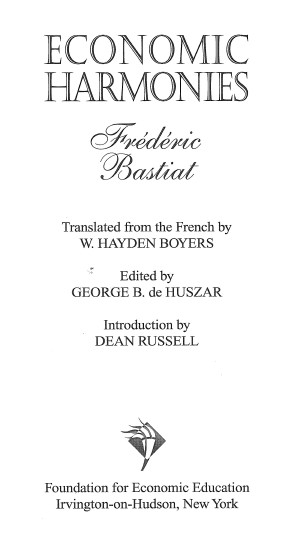
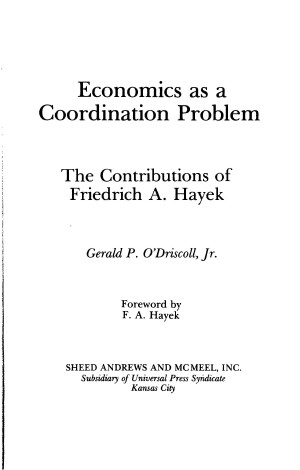
Gerald P. O’Driscoll (author)
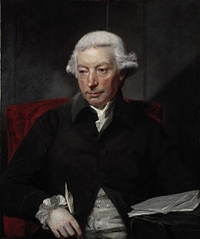

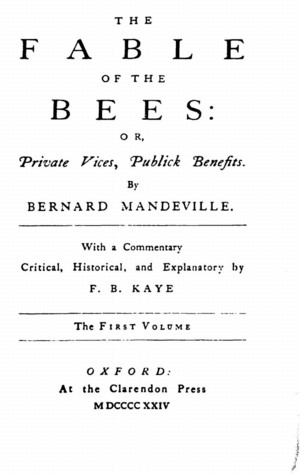
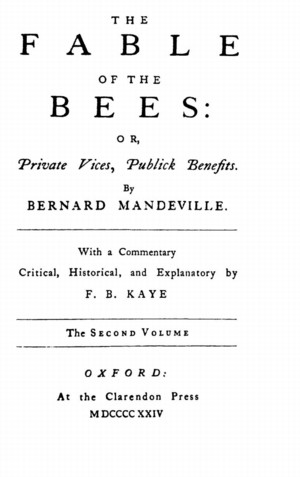

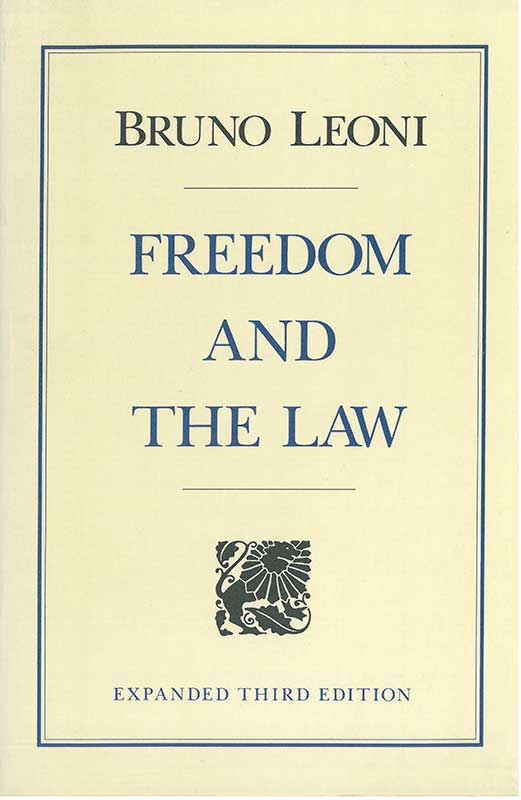
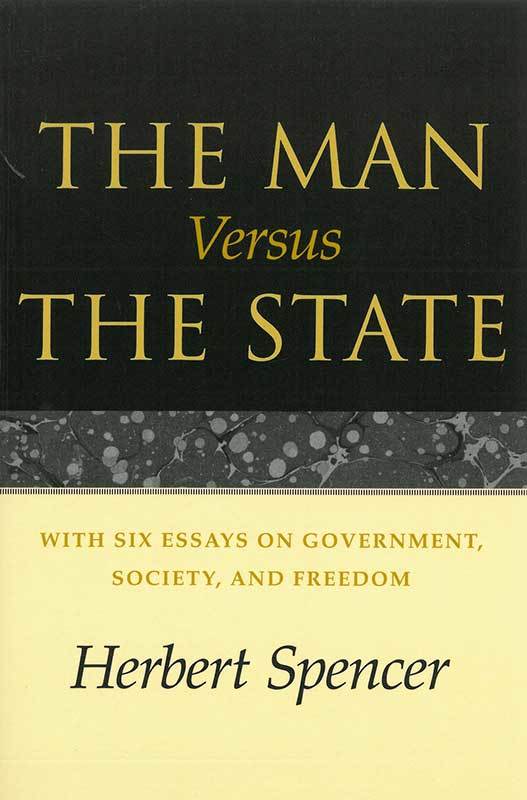
Herbert Spencer (author)
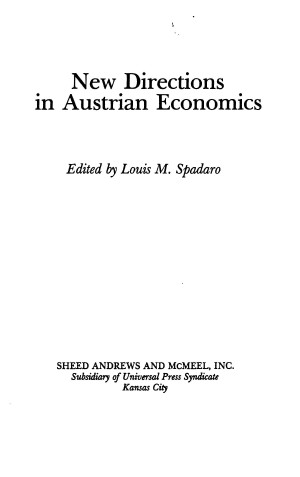
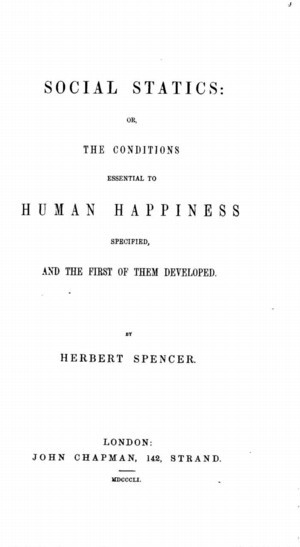
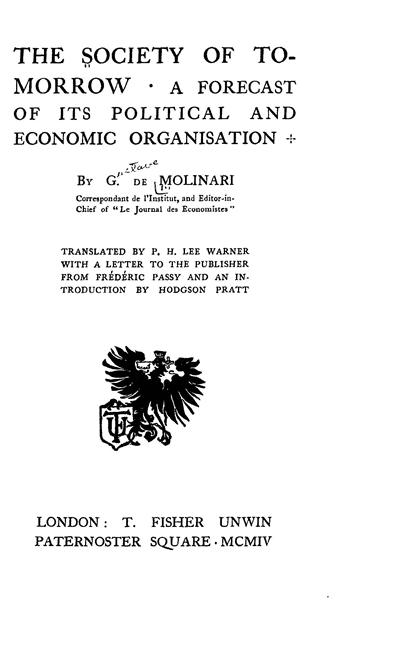
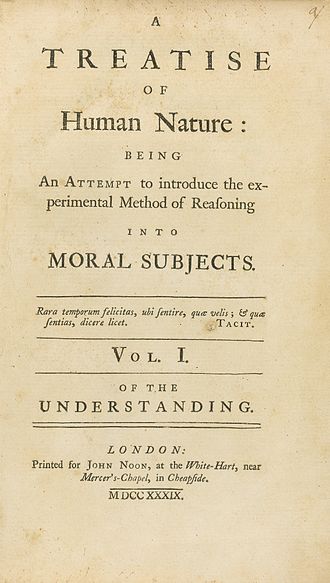
Quotes
Quote
Adam Smith on Men of Public Spirit
Economics
Bernard Mandeville concludes his fable of the bees with a moral homily on the virtues of peace, hard work, and diligence (1705)
Economics
Bernard Mandeville uses a fable about bees to show how prosperity and good order comes about through spontaneous order (1705)
Science
Charles Darwin on life as a spontaneous order which emerged by the operation of natural laws (1859)
Economics
Hayek on Spontaneous Order and the Division of Labor
Law
Jasay on the superiority of “spontaneous conventions” over “legal frameworks” (2007)
Economics
Mandeville on the social cooperation which is required to produce a piece of scarlet cloth (1723)
Economics
Sumner on the industrial system as an example of social co-operation (c. 1900)
Notes About This Collection
As every individual, therefore, endeavours as much as he can both to employ his capital in the support of domestick industry, and so to direct that industry that its produce may be of the greatest value; every individual necessarily labours to render the annual revenue of the society as great as he can. He generally, indeed, neither intends to promote the publick interest, nor knows how much he is promoting it. By preferring the support of domestick to that of foreign industry, he intends only his own security; and by directing that industry in such a manner as its produce may be of the greatest value, he intends only his own gain, and **he is in this, as in many other cases, led by an invisible hand to promote an end which was no part of his intention**. Nor is it always the worse for the society that it was no part of it. By pursuing his own interest he frequently promotes that of the society more effectually than when he really intends to promote it. I have never known much good done by those who affected to trade for the publick good. It is an affectation, indeed, not very common among merchants, and very few words need be employed in dissuading them from it.
Adam Ferguson, in his _Essay on the History of Civil Society used the phrase (later taken up by Hayek) “the result of human action, but not the execution of any human design”:
Men, in general, are sufficiently disposed to occupy themselves in forming projects and schemes: But he who would scheme and project for others, will find an opponent in every person who is disposed to scheme for himself. Like the winds that come we know not whence, and blow whithersoever they list, the forms of society are derived from an obscure and distant origin; they arise, long before the date of philosophy, from the instincts, not from the speculations of men. The crowd of mankind, are directed in their establishments and measures, by the circumstances in which they are placed; and seldom are turned from their way, to follow the plan of any single projector. Every step and every movement of the multitude, even in what are termed enlightened ages, are made with equal blindness to the future; and nations stumble upon establishments, which are indeed** the result of human action, but not the execution of any human design**.
In the 19th century the idea was pursued by Frederic Bastiat and Gustave de Molinari in France, and Herbert Spencer in England. Later in the 19th century the Austrian school of economics made the idea central to their reformulation of economic theory after 1871. Carl Menger, Ludwig von Mises, and Friedrich Hayek are the key figures in this development.
Related Resources * Norman Barry, “The Tradition of Spontaneous Order”
Readers' Forum on Norman Barry’s “The Tradition of Spontaneous Order” “Invisible Hand” Explanations of Society
Steven Horwitz, Spontaneous Order in Adam Smith, at AdamSmithWorks
Israel Kirzner, “Equilibrium versus Market Process” and Ludwig Lachmann, “On the Central Concept of Austrian Economics: Market Process” in The Foundations of Modern Austrian Economics, ed. Edwin G. Dolan.
Gerald O'Driscoll, “Spontaneous Order and the Coordination of Economic Activities” in New Directions in Austrian Economics, ed. Louis M. Spadaro